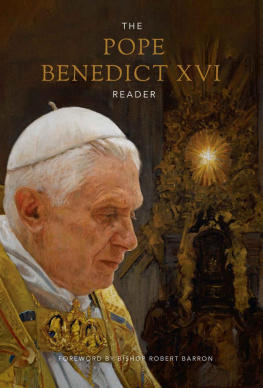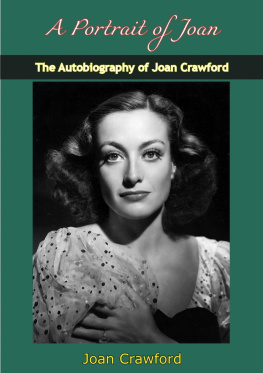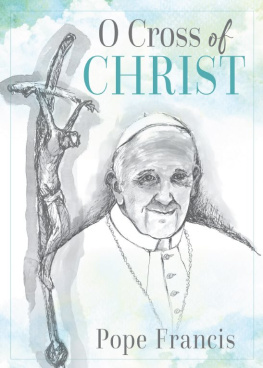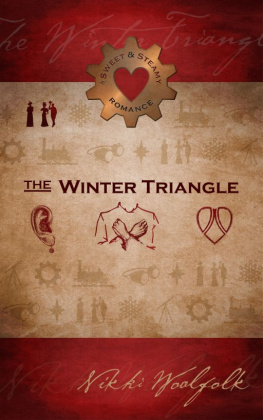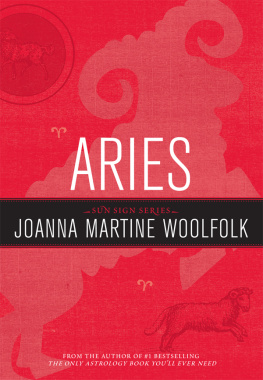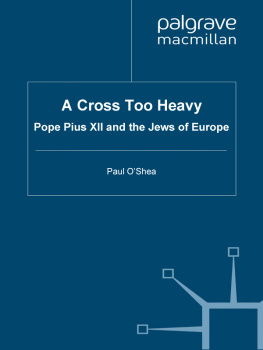Donna Woolfolk Cross - Pope Joan
Here you can read online Donna Woolfolk Cross - Pope Joan full text of the book (entire story) in english for free. Download pdf and epub, get meaning, cover and reviews about this ebook. year: 2009, publisher: Broadway, genre: Art. Description of the work, (preface) as well as reviews are available. Best literature library LitArk.com created for fans of good reading and offers a wide selection of genres:
Romance novel
Science fiction
Adventure
Detective
Science
History
Home and family
Prose
Art
Politics
Computer
Non-fiction
Religion
Business
Children
Humor
Choose a favorite category and find really read worthwhile books. Enjoy immersion in the world of imagination, feel the emotions of the characters or learn something new for yourself, make an fascinating discovery.

- Book:Pope Joan
- Author:
- Publisher:Broadway
- Genre:
- Year:2009
- Rating:4 / 5
- Favourites:Add to favourites
- Your mark:
- 80
- 1
- 2
- 3
- 4
- 5
Pope Joan: summary, description and annotation
We offer to read an annotation, description, summary or preface (depends on what the author of the book "Pope Joan" wrote himself). If you haven't found the necessary information about the book — write in the comments, we will try to find it.
Pope Joan — read online for free the complete book (whole text) full work
Below is the text of the book, divided by pages. System saving the place of the last page read, allows you to conveniently read the book "Pope Joan" online for free, without having to search again every time where you left off. Put a bookmark, and you can go to the page where you finished reading at any time.
Font size:
Interval:
Bookmark:


POPE JOAN
It is so gratifying to read about those rare heroes whose strength of vision enables them to ignore the almost overpowering messages of their own historical periods. Pope Joan has all the elements one wants: love, sex, violence, duplicity and long-buried secrets. Cross has written an engaging book.
Los Angeles Times Book Review
A fascinating and moving account of a womans determination to learn, despite the opposition of family and society. Highly recommended.
Library Journal (starred review)
Cross makes an excellent, entertaining case that in the Dark Ages, a woman sat on the papal throne. A colorful, richly imagined novel.
Publishers Weekly
Pope Joan reveals the harsh realities of the Dark Ages. Violence is rife in the government, church and home; logic and reason are shunned as dangerous ideas and women are considered useful only as mens servants and child bearers. The novel explores the extraordinary life of an independent, intelligent and courageous woman who overcomes oppression and ascends to the highest level of religious power. Cross masterful use of anticipation, as well as the sweeping historical landscape of the story, keep Pope Joan intriguing. An exciting journey through history as its being made.
San Francisco Chronicle
Eloquently written and spellbinding in its account of this legendary figure.
Arizona Republic
The life of an intelligent, headstrong woman in 9th-century Europe, the kind of woman who might have dared such an adventure in an era when obedience was a womans most admired trait. Cross succeeds admirably, grounding her fast-moving tale in a wealth of rich historical detail.
Orlando Sentinel
A story of passion and faithand a reminder that some things never change, only the stage and players do.
Fort Worth Star-Telegram
A remarkable woman uses her considerable intellectand more than a little luckto rise from humble origins to become the only female Pope, in this breakneck adventure.
Kirkus Reviews
A page-turner!
Glamour
F OR MY FATHER,
W ILLIAM W OOLFOLK ,
and there are no words
to add
 Prologue
Prologue
I T WAS the twenty-eighth day of Wintarmanoth in the year of our Lord 814, the harshest winter in living memory.
Hrotrud, the village midwife of Ingelheim, struggled through the snow toward the canons grubenhaus. A gust of wind swept through the trees and drove icy fingers into her body, searching the holes and patches of her thin woolen garments. The forest path was deeply drifted; with each step, she sank almost to her knees. Snow caked her eyebrows and eyelashes; she kept wiping her face to see. Her hands and feet ached with cold, despite the layers of linen rags she had wrapped around them.
A blur of black appeared on the path ahead. It was a dead crow. Even those hardy scavengers were dying this winter, starved because their beaks could not tear the flesh of the frozen carrion. Hrotrud shivered and quickened her pace.
Gudrun, the canons woman, had gone into labor a month sooner than expected. A fine time for the child to come, Hrotrud thought bitterly. Five children delivered in the last month alone, and not one of them lasted more than a week.
A blast of wind-driven snow blinded Hrotrud, and for a moment she lost sight of the poorly marked path. She felt a swell of panic. More than one villager had died that way, wandering in circles only a short distance from their homes. She forced herself to stand still as the snow swirled around her, surrounding her in a featureless landscape of white. When the wind let up, she could just make out the outline of the path. Again she began to move forward. She no longer felt pain in her hands and feet; they had gone completely numb. She knew what that could mean, but she could not afford to dwell on it; it was important to remain calm.
I must think of something besides the cold.
She pictured the home in which she had been raised, a casa with a prosperous manse of some six hectares. It was warm and snug, with walls of solid timber, far nicer than their neighbors homes, made of simple wooden lathes daubed with mud. A great fire had blazed in the central hearth, the smoke spiraling up to an opening in the roof. Hrotruds father had worn an expensive vest of otter skins over his fine linen bliaud, and her mother had had silken ribbons for her long, black hair. Hrotrud herself had had two large-sleeved tunics, and a warm mantle of the finest wool. She remembered how soft and smooth the expensive material had felt against her skin.
It had all ended so quickly. Two summers of drought and a killing frost ruined the harvest. Everywhere people were starving; in Thuringia there were rumors of cannibalism. Through the judicious sale of the family possessions, Hrotruds father had kept them from hunger for a while. Hrotrud had cried when they took away her woolen mantle. It had seemed to her then that nothing worse could happen. She was eight years old; she did not yet comprehend the horror and cruelty of the world.
She pushed her way through another large drift of snow, fighting off a growing light-headedness. It had been several days since she had had anything to eat. Ah, well. If all goes well, I will feast tonight. Perhaps, if the canon is well pleased, there will even be some bacon to take home. The idea gave her renewed energy.
Hrotrud emerged into the clearing. She could see the blurred outlines of the grubenhaus just ahead. The snow was deeper here, beyond the screen of trees, but she drove ahead, plowing through with her strong thighs and arms, confident now that safety was near.
Arriving at the door, she knocked once, then immediately let herself in; it was too cold to worry about social courtesies. Inside, she stood blinking in darkness. The single window of the grubenhaus had been boarded up for winter; the only light came from the hearth fire and a few smoky tallows scattered about the room. After a moment, her eyes began to adjust, and she saw two young boys seated close together near the hearth fire.
Has the child come? Hrotrud asked.
Not yet, answered the older boy.
Hrotrud muttered a short prayer of thanks to St. Cosmas, patron saint of midwives. She had been cheated of her pay that way more than once, turned away without a denar for the trouble she had taken to come.
At the hearth fire, she peeled the frozen rags from her hands and feet, crying out in alarm when she saw their sickly blue-white color. Holy Mother, do not let the frost take them. The village would have little use for a crippled midwife. Elias the shoemaker had lost his livelihood that way. After he was caught in a storm on his way back from Mainz, the tips of his fingers had blackened and dropped off in a week. Now, gaunt and ragged, he squatted by the church doors, begging his living off the charity of others.
Shaking her head grimly, Hrotrud pinched and rubbed her numbed fingers and toes as the two boys watched in silence. The sight of them reassured her.
Font size:
Interval:
Bookmark:
Similar books «Pope Joan»
Look at similar books to Pope Joan. We have selected literature similar in name and meaning in the hope of providing readers with more options to find new, interesting, not yet read works.
Discussion, reviews of the book Pope Joan and just readers' own opinions. Leave your comments, write what you think about the work, its meaning or the main characters. Specify what exactly you liked and what you didn't like, and why you think so.

